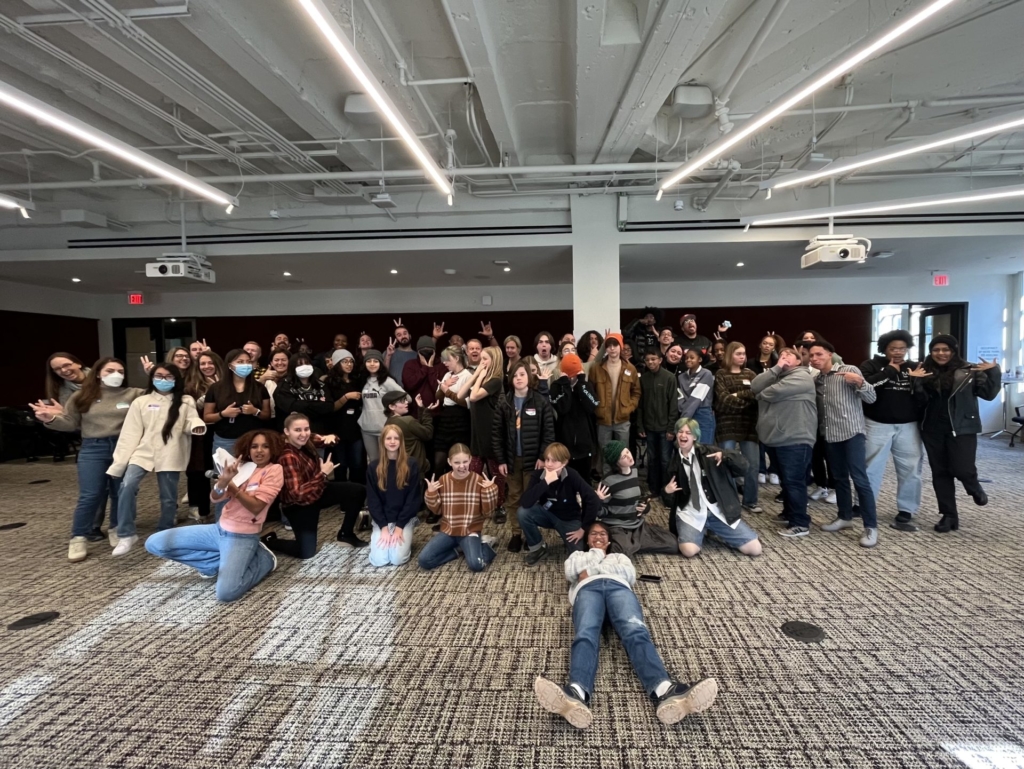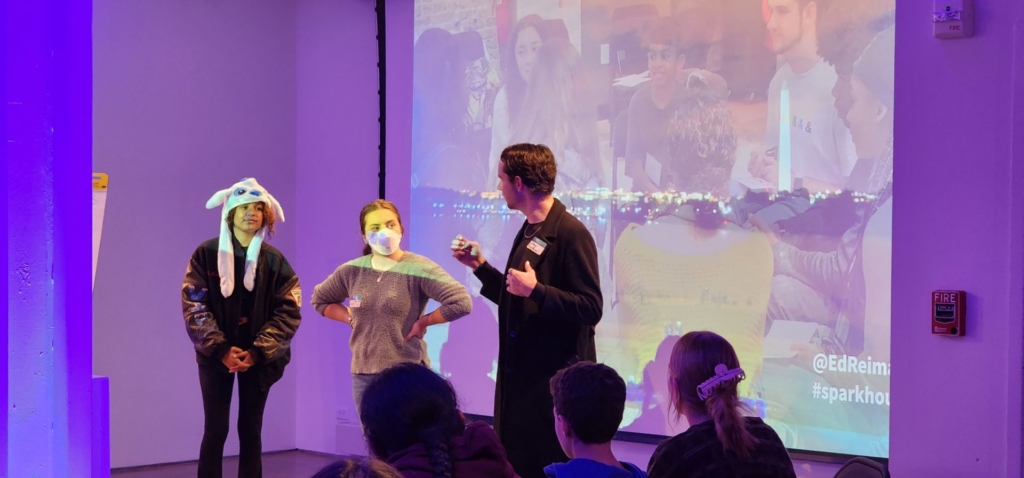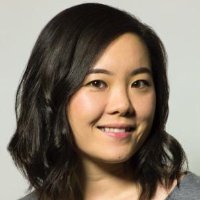Woven throughout the days were insights and honest conversations, travel and exploration, singing and dancing, a breaking of bread, and lots of laughter — genuine human connection.
Lindsy Ogawa, Senior Director of Practice and Field Advancement
SparkHouse convenes young people and mentors from learner-centered environments across the country who share a commitment to education truly working for every learner in every community.
Education Reimagined hosted SparkHouse DC 2022 on November 16 and 17 — our first in-person gathering with young advocates and leaders after three long years. We believe young people experiencing an education where they are known, valued, and immersed in learning that matters to them are key drivers for transformation in education. And, learners and mentors at this national gathering reaffirmed this belief — not only because of what they do, but because of who they are. Throughout the time we spent together, we saw learners freely exploring their agency, working in community with each other, and expressing multitudes of joy.

Group photo from SparkHouse DC 2022.
SparkHouse DC 2022 united 39 learners and 18 adults from 11 learner-centered environments across eight states. The learning environments represented public, charter, independent, homeschooling co-ops, and youth development (out-of-school) programs across learners ages 12 to 19 years old.
Over the two days, the group created community in the room. They discovered and investigated learner-centered education and learned about each other’s distinct environments; considered ways they might channel their unique gifts and passions to make an even greater difference in their communities and to the national learner-centered movement; and, they developed their confidence as leaders and advocates for an equitable, loving education. Woven throughout the days were insights and honest conversations, travel and exploration, singing and dancing, a breaking of bread, and lots of laughter — genuine human connection. It was moving to see some of the quieter learners become more confident throughout the sessions and witness the beginnings of new friendships that will cross geographical divides.
What was most striking about being in a room full of people experiencing learner-centered education? It was evident that these young people are the evidence that learner-centered education works.
Older learners tend to lean in when younger learners share. Twelve and thirteen-year-olds are refreshingly creative, encouraging, and grounded — exercising their agency. Learners naturally invite each other into conversations and build on what others say. They are curious about people’s experiences and embrace each other’s passions and gifts, similarities and differences. They listen and contribute to conversations, thinking not only about themselves, but the rippling effects and care for others beyond their inner circle.
Some of the learners reflected on what would be possible if learner-centered education were more available:
- “There would be a kinder and more passionate world.” —Lacie, age 16, Newport, RI
- “Adults would want to be educators again. There would be a total change in the profession because they could learn with us and also share their passions.” —Maxwell, age 12, Ojai, CA
- “Learner-centered should be global and I want to be a part of making that dream a reality. It allows for more creativity and understanding in the world. It’d allow for more qualified, more experienced, and more motivated people in their chosen careers.” —Syrae, age 16, Baltimore, MD
- “SparkHouse really made me think about how passionate I am about education and how I’d like to advocate for it… If people all around the world could experience learner-centered education, depression and anxiety could go down because they are surrounded by support and understanding.” —Cameron, age 14, San Diego, CA
- “I feel more brave… more people would be more brave to take action for themselves and with others.” —Daisy, age 13, Newport, RI
And, young learners are not the only evidence for learner-centered education. This SparkHouse was program led by Izzy Fitzgerald, Kalei Delovio, and Colby Mills (3 college learners) and Alin Bennett (a former principal) who all have experienced learner-centered education. Jemar Lee and Anya Smith-Roman, who joined the very first SparkHouse in 2016 as high schoolers, joined and contributed to this gathering as adults.
These adult learners jumped in with personal stories and reflections, joyfully sharing the difference their education continues to make in their lives. Jemar shared about the confidence he had to speak with professionals when applying for college and jobs, and the relationships he continues to have with his educators. Colby, who is studying to be an educator, shared how his experiences brought him to create a loving and supportive community for others in SparkHouse.
It was powerful to get re-presenced to these (now adult) learners, not only because of any particular thing they said or did, but because of who they are. How fortunate our team is to have known them then, continue to be in relationship with them now, and have the opportunity to witness and be a part of their life paths that they continue to carve.

Program leaders Izzy Fitzgerald, Kalei Delovio, and Colby Mills.
What was most remarkable about being together with learners and adults who have experienced learner-centered is that they are not at all surprised by the joy, wisdom, and potential of young people. While learners never cease to amaze, this is in fact, perfectly normal.
It is hard to be immersed with so many learners experiencing this approach and not wonder — what would our world be like if every child was known, loved, and engaging in learning that mattered to them? What if environments with this approach were not just bright spots, but the norm? And what if we had an education system designed for agency, community, and joy?

